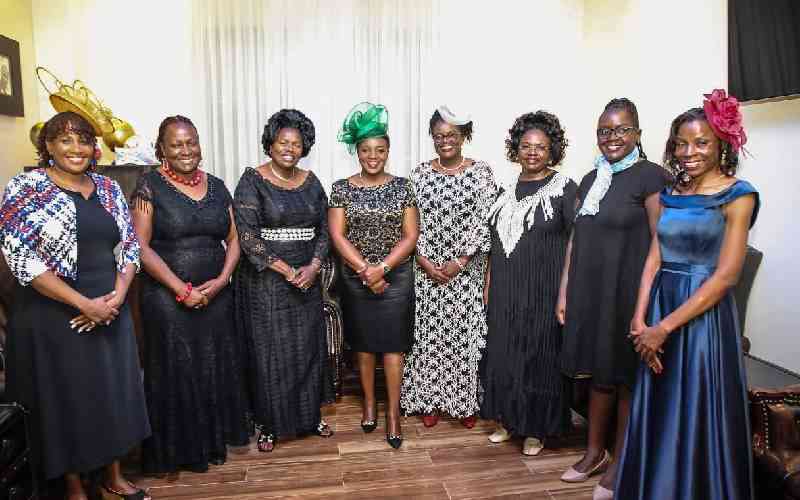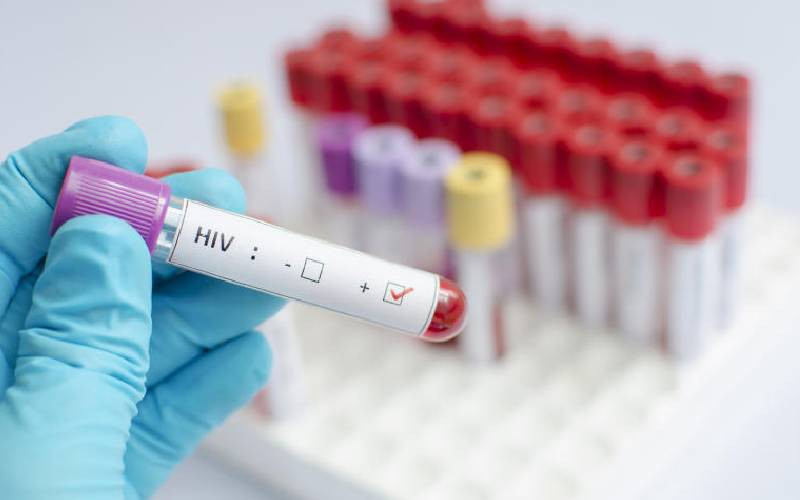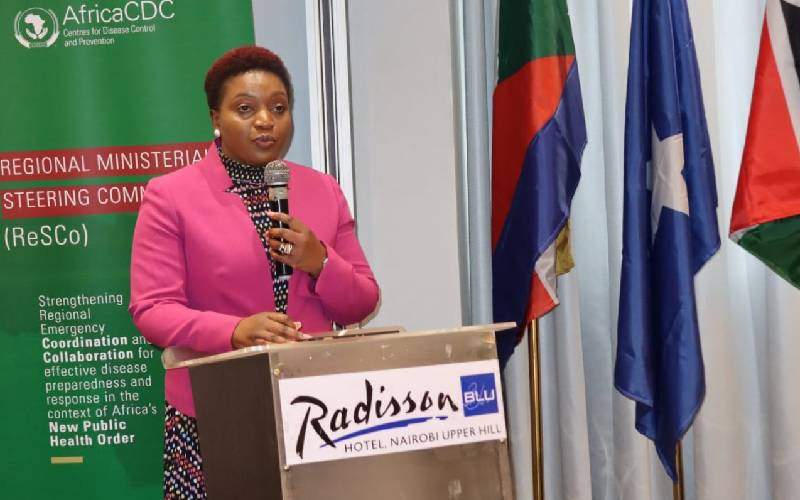
Health Cabinet Secretary Susan Nakhumicha has pleaded with women leaders to help fight sexual violence in adolescent girls.
Nakhumicha said the number of teenage pregnancies and new HIV transmission as a result of child sex is worrying.
Data by the National Syndemic Disease Control Council (NSDCC) reveal that in 2023, at least 53,960 sexual and gender-based violence cases were reported in the country.
The cases were mostly perpetrated against young women, girls and children.
Sadly, 3,203 of the cases recorded were children aged zero to nine years.

Additionally, 254,753 girls aged between 10 and 19 years were pregnant in 2023.
“A quarter of a million?” posed the CS.
- Sex education should start at home, renowned epidemiologist suggests
- Senator Mumma backs calls to introduce sex education in schools
- Risk of new HIV infections up as teen pregnancies rise
- Fighting the shadows: Bungoma, Vihiga and Kisumu counties confront gender-based violence
Keep Reading
In an emotional speech, Nakhumicha gave her encounter with a nine-year-old girl in a labour ward in Meru County, in December last year.
She said the girl looked weak during labour but stood strong to deliver twins.
“...we cried. A nine-year-old girl was carrying twins!”
She said the consequences of sexual violence and child motherhood are dire, including maternal deaths, and long-lasting psychological and physical challenges.
Also, babies born to young mothers experience adverse health outcomes, leading to a strain on health and economic outcomes for the nation.

In a joke meant to send a strong message to perpetrators of teenage pregnancies, she said “We need to get a digital gadget to be fixed on men anytime they make an adolescent, or a school girl pregnant, it clicks and records somewhere so that we can trace and act”
Nakhumicha spoke during the women's leadership summit held in Bungoma County.
The summit brought together women leaders from the Western region and across the country.
During the summit, Western Block to end the Triple Threat was officially launched.
A triple threat is a syndemic encounter where girls are sexually abused coupled with early pregnancies and HIV infections.

In the five Western counties namely Bungoma, Kakamega, Vihiga, Busia, and Trans-Nzoia, at least 15 per cent (38,025) attendees at antenatal clinics were adolescents aged 10-19.
The counties also reported 18 per cent (3,677) cases of sexual and gender-based violence against children and adolescents.
“I want to ask all of us to step forward and do something for ourselves, our mothers, our aunties, our daughters and all women in communities that we live in.
The world over, women are standing to do something about the health of women and girls,” added Ms Nakhumicha.
Further, the CS said Kenya is yet to eliminate communicable diseases.
Nationally in 2023, about 12,558 women and girls were newly infected with HIV as compared to 5, 122 men and boys.
Also, Kenya’s efforts to stop new HIV infections among children remain compromised according to the official, with 4,474 acquiring HIV through mother transmission.
“Our efforts to halt and reverse the HIV epidemic which disproportionately affects women and girls are yet to bear fruit,” said the CS.
On her part, NSDCC CEO Dr Ruth Laibon Masha said a multidisciplinary campaign is needed to end the triple threat.

“We have the evidence, and data is being presented in health facilities, but we are telling you (CS) that we are overwhelmed.
We cannot deal with this issue alone; it needs all of us. It needs the government, but it also needs the society and all sectors,” said Dr Masha.
Masha said among initiatives set by NSDCC to reduce HIV infections among adolescents and young people, is increasing knowledge on prevention for HIV.
The CEO added that it is also key for the country to increase the age for sex.
“We don't want our children to have sex early. Early sex is not just HIV. It's sexually transmitted infections and cervical cancer.
I know when we were young, no one told us the relationship between sex, HPV and cervical cancer. We were never told this, we were just told its pregnancy, HIV, syphilis, gonorrhoea, and the rest,” said the CEO.
The CEO echoed Nakhumicha’s speech on HIV infections, noting that 75 per cent of all HIV infections are among young people.
“Our younger people, and our younger men, we are saying it is not yet over. AIDS is not yet over. We offer medicines, but the gains we have made are fragile.
When we look at our data, the number of people living with HIV on treatment increased, but the challenge is the resources are few. We must look at stopping infections,” said the official.
On pregnancies, Masha said, “When we look at pregnancies, sometimes it looks like a surprise. In 2018, 275,00 girls were pregnant. I think this was the first time we could have identified this as a problem. Last year, 254,000 visited ANC clinics, but what is interesting is children aged 10 to 14 years”

Masha said NSDCC in partnership with the Ministry of Health, Education and other stakeholders want to make sure adolescent mothers get back to school and educate the community to stop complacency.
On her part, Bungoma Deputy Governor Jenipher Mbatiany asked women leaders to raise resources to support girls from poor family backgrounds with sanitary towels in schools.
Bungoma County is leading in Sexual and gender-based violence and is ranked among the top counties in new HIV infections.
“Bungoma has in the recent past featured bad news. We are not doing well. When high cases of GBV and teen pregnancies are raised, Bungina becomes the main talk” said Mbayiany.
Recently, at least 54 girls in a single school in Bungoma were reported to be pregnant.
The Deputy Governor said a list of shame of men impregnating girls should be provided to help fight the vice.
 The Standard Group Plc is a multi-media organization with investments in media platforms spanning newspaper print
operations, television, radio broadcasting, digital and online services. The Standard Group is recognized as a
leading multi-media house in Kenya with a key influence in matters of national and international interest.
The Standard Group Plc is a multi-media organization with investments in media platforms spanning newspaper print
operations, television, radio broadcasting, digital and online services. The Standard Group is recognized as a
leading multi-media house in Kenya with a key influence in matters of national and international interest.











